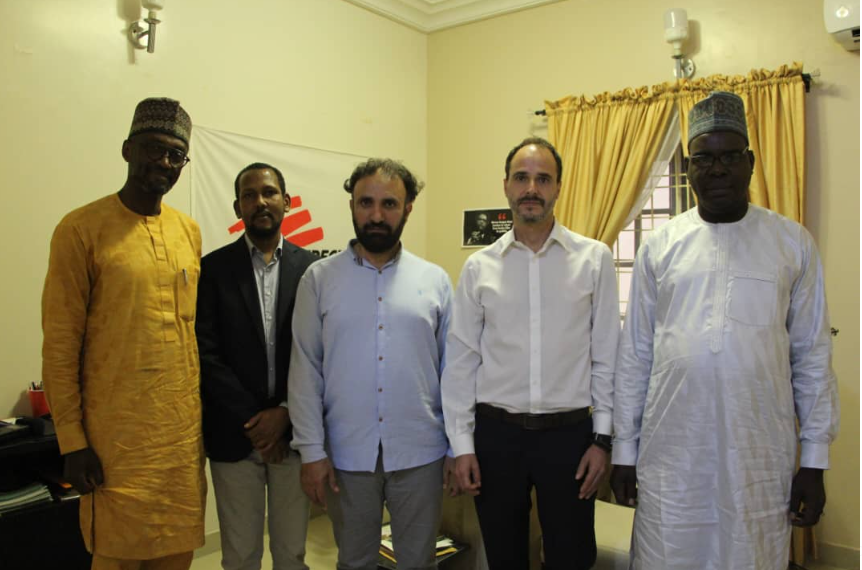The humanitarian crisis in northern Nigeria continues to deepen, primarily evidenced by a dramatic rise in malnutrition among children, as highlighted by Dr. Christos Christou, the International President of Médecins Sans Frontières (MSF), also known as Doctors Without Borders. During a recent press briefing in Abuja, Dr. Christou emphasized that admissions of severely malnourished children surged by 51 percent between January and August this year, compared to the same timeframe last year. This alarming trend underscores the ongoing struggles faced by communities in northern Nigeria, where malnutrition is compounded by the prevalence of vaccine-preventable diseases and inadequate healthcare access, exacerbated by persistent insecurity in the region.
Dr. Christou’s visit to Maiduguri, the capital of Borno State, illuminated the dire health conditions in local hospitals and clinics, where MSF functions. He reported that MSF supports the local healthcare system in its fight against malaria and other diseases while providing essential maternity services. Furthermore, MSF recently established a cholera treatment center in response to a formally declared outbreak, emphasizing the urgency of the situation. Dr. Christou also noted that the current spikes in malnutrition admissions are particularly concerning; he quoted an MSF colleague who pointed out that this year stands out in terms of severity, as the number of malnourished children remains alarmingly high even after seasonal peaks should have subsided.
A significant barrier to recovery for many families is their limited access to even the most basic healthcare service. Dr. Christou explained that many patients arrive at MSF facilities in a worsened state due to delays in reaching medical assistance caused by limited financial resources and inadequate transportation options. The tragic reality is that families often have to endure escalating health crises before they can seek help, thus pointing to failures in the healthcare infrastructure that need urgent redress.
In addition to rising malnutrition rates, Dr. Christou highlighted ongoing outbreaks of vaccine-preventable diseases such as measles, which are claiming lives disproportionately among children. Between January and August this year, over 12,500 measles cases were treated, nearly double the amount from the previous year. This situation creates a vicious cycle: unvaccinated children are not only at heightened risk of severe illness and death from these diseases, but these afflictions also increase the likelihood of acute malnutrition, further complicating health outcomes for vulnerable populations.
The ramifications of this humanitarian crisis are further exacerbated by the financial constraints faced by humanitarian organizations operating in the region. Dr. Christou pointed out that many entities have had to cut budgets or curtail their operations, which inevitably impairs their ability to respond effectively to the escalating health emergency. MSF itself has experienced a marked increase in admissions for malnutrition, reporting over 52,725 cases treated across northern Nigeria during the first eight months of the year, indicating a severe public health challenge in both scale and scope.
Furthermore, Ahmad Bilal, the head of MSF’s mission, corroborated the concerning statistics, revealing that states where MSF operates have recorded a staggering 200,000 admissions in ambulatory therapeutic feeding centers this year. He remarked on the stressful conditions faced by medical staff, highlighting instances where two patients were placed in one hospital bed, a grim illustration of the overwhelming situation that health services confront due to continuously rising patient numbers. The cumulative data highlight an urgent call for enhanced support and intervention strategies to address malnutrition, vaccine shortages, and overall healthcare accessibility, underlining a healthy future for children in northern Nigeria as crucial to breaking the cycle of poverty and ill health.














